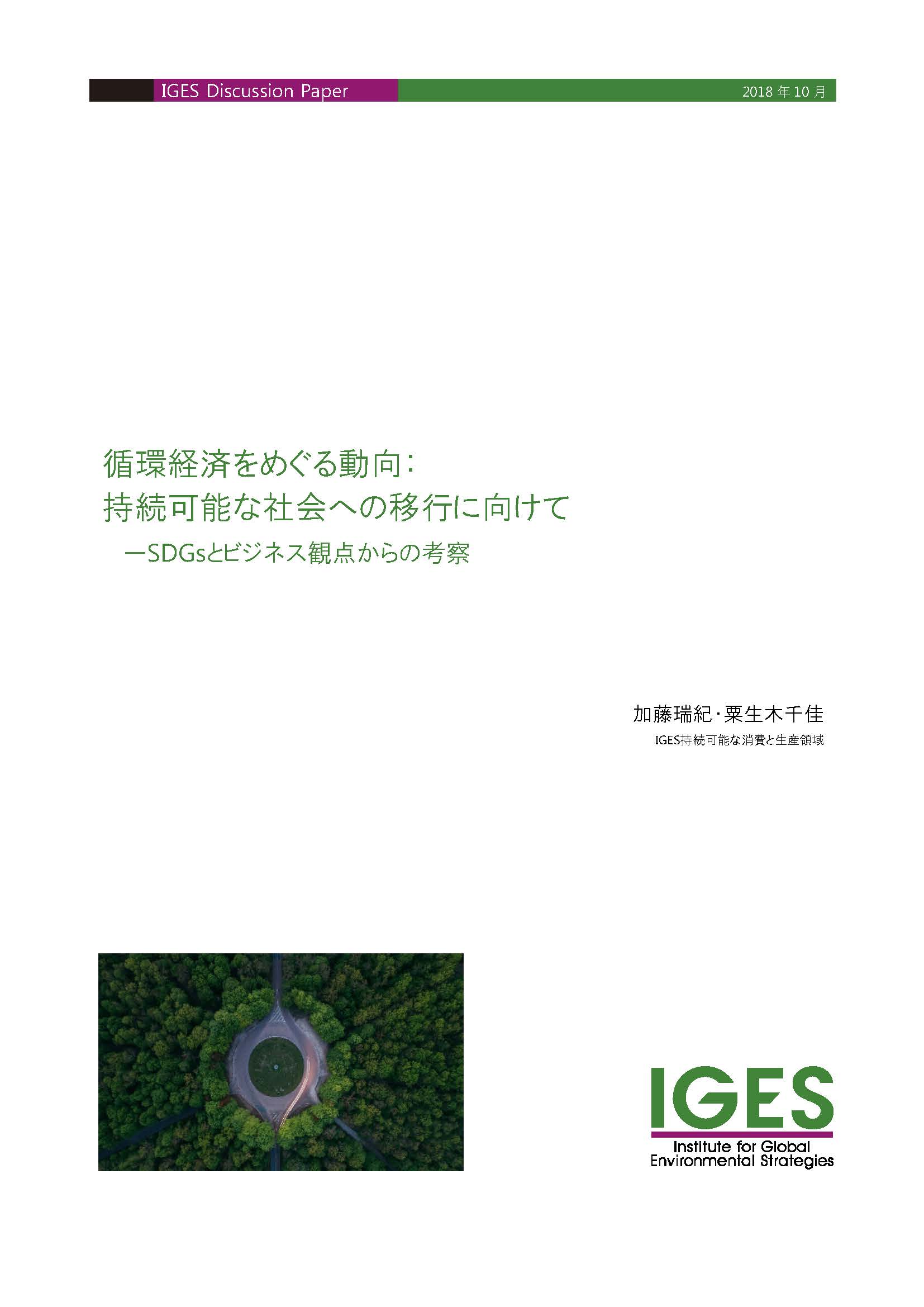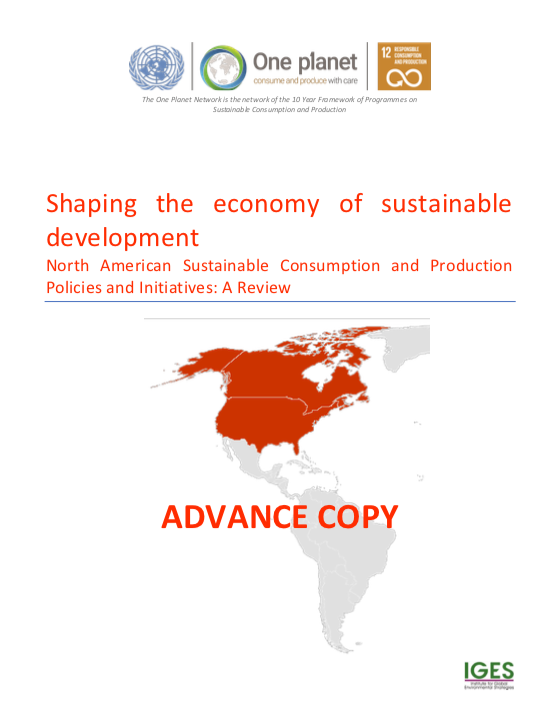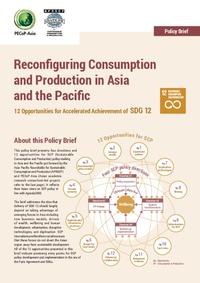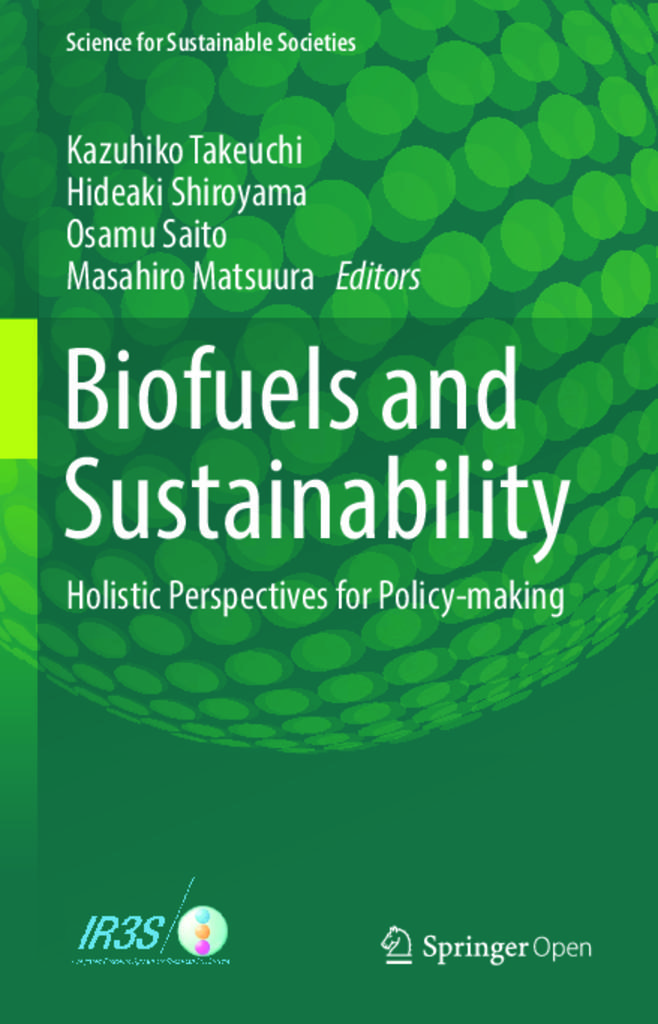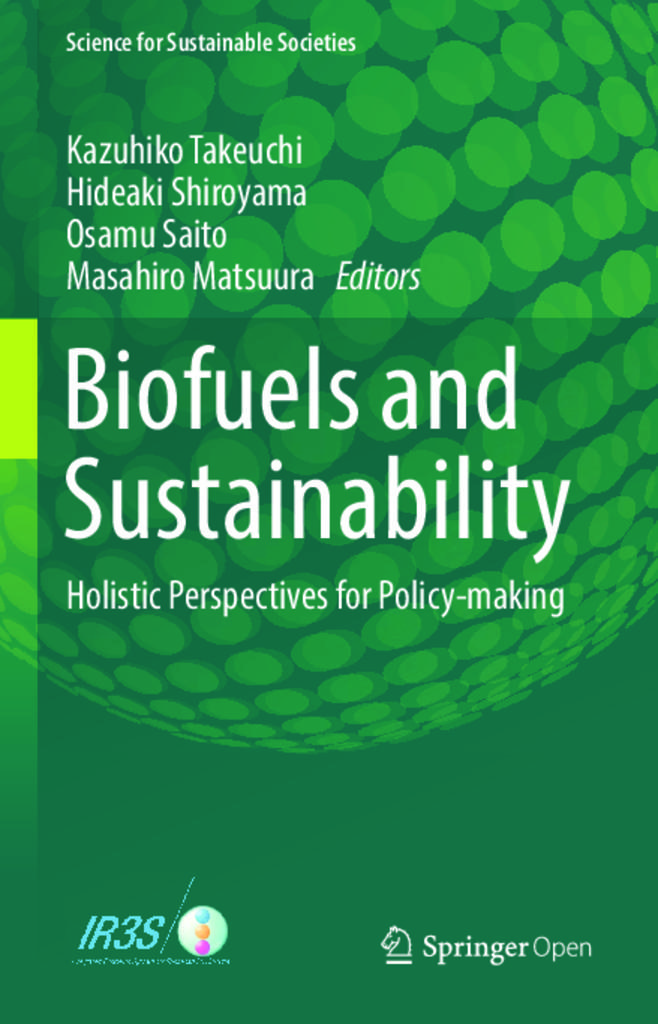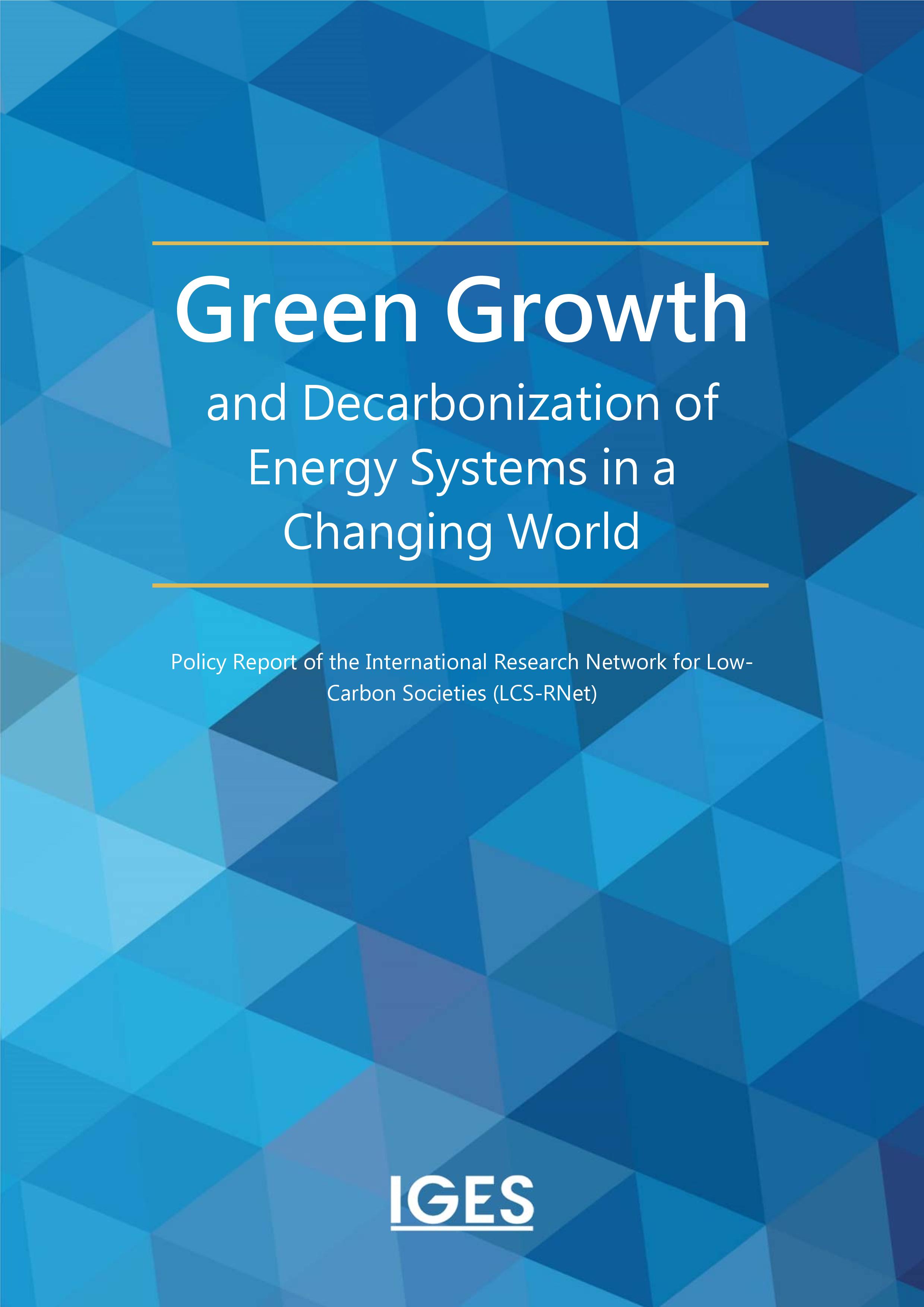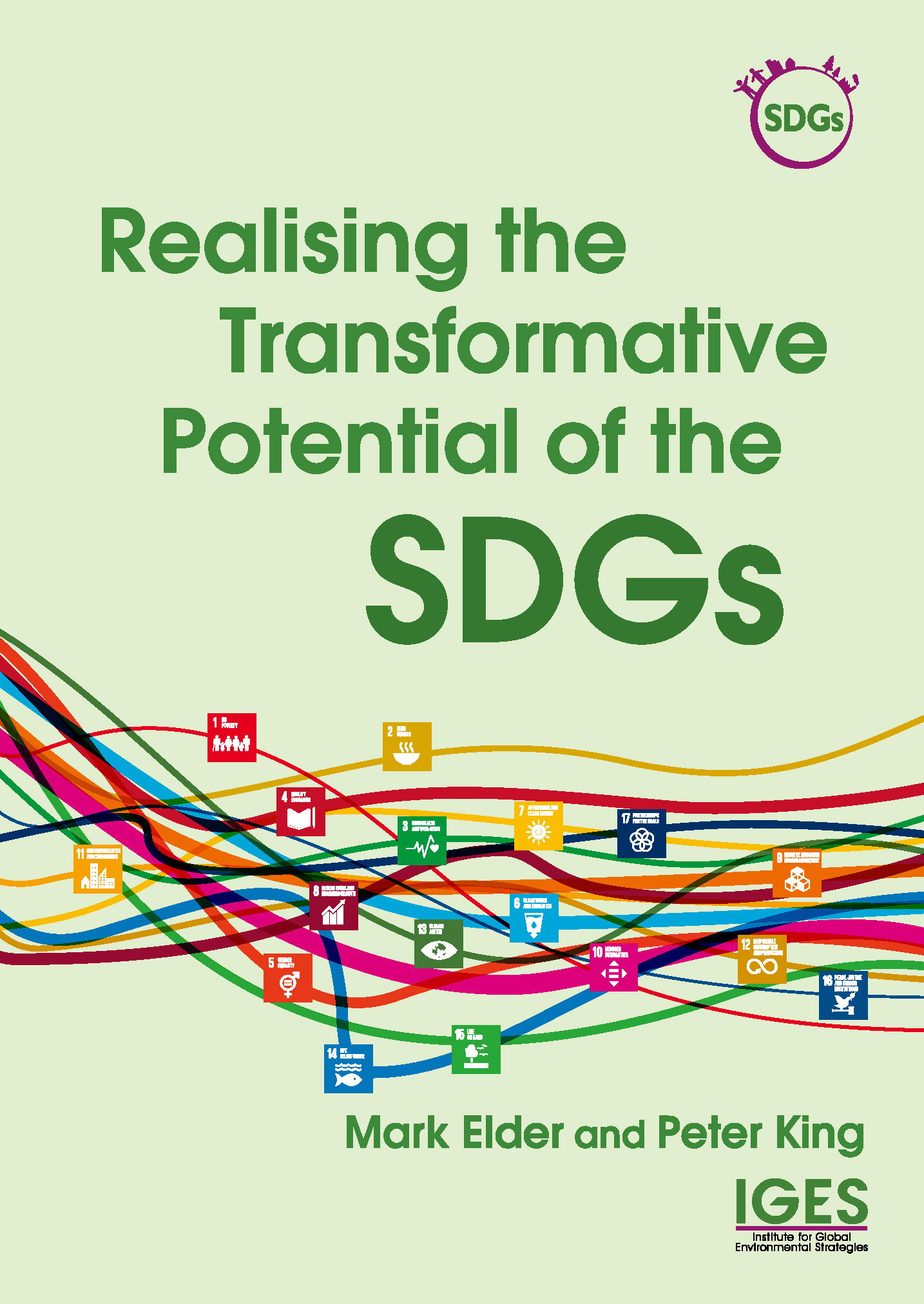This report presents an overview of policies and initiatives related to sustainable consumption and production advanced by the governments of the African region. Although not pretending to present an exhaustive overview, the report was developed based on a broad literature review, including key reports produced by the UN Economic Commission for...
- Clear all
- Publication Year: (-) 2012
- Publication Year: (-) 2018
- Topic: (-) Environmental Safeguards
- Topic: (-) Green Economy
- Topic: (-) Sustainable Consumption and Production
Results 1 - 10 of 72 (Sorted by date)
循環経済(サーキュラーエコノミー)とは、資源循環を通じた経済の在り方であり、調達、生産、消費、廃棄といった一方向の流れではなく、リサイクル、再利用、再生産、省資源の製品開発、シェアリングなどを通じた資源循環の実現を目指す概念である。本稿では、欧州における政策開発や国際合意を背景に近年急速に機運が高まりつつある循環経済に焦点を当て、なぜいま世界的に循環経済が注目されているのか、またその実施に向けた動きをSDGsやビジネスの観点から概観している。
The North American region consists of the United States of America and Canada, two geographically large countries with populations, industries, and environmental concerns that are both diverse and deeply integrated. This report presents an overview of policies and initiatives related to sustainable consumption and production advanced by the...
In 環境経済政策研究
第五次環境基本計画は,環境・経済・社会問題が相互に連関しているという認識のもと,それを解決するために,持続可能な開発目標(SDGs)およびパリ協定の採択という時代の転換点を契機とする新たな文明社会へのパラダイムシフトを要請している.本稿は,このようなパラダイムシフトにつながる政策として,第五次環境基本計画の重点戦略を支える「地球温暖化対策計画」(2016年5 月13 日閣議決定)の長期目標である2050 年までに80%の温室効果ガス(GHG)の排出削減を達成することを目的とした本格的な炭素税導入を核としたグリーン税制改革を取り上げ,グリーン税制改革によって豊かな暮らしを維持すると同時に大幅なGHG 排出削減を達成することが可能であることを示した.
This policy brief presents four directions and 12 opportunities for SCP (Sustainable Consumption and Production) policy-making in Asia and the Pacific put forward by the Asia Pacific Roundtable for Sustainable Consumption and Production (APRSCP) and PECoP-Asia (Asian academic research consortium-led project; refer to the last page). It reflects...
In Biofuels and Sustainability: Holistic Perspectives for Policy-making
This chapter discusses the social and economic impacts of biofuels in East Asia by analyzing four country case studies. Three case study countries are large Asian rapidly developing countries which were expected to be large consumers and producers of biofuels at the beginning of the biofuel boom in the late 2000s: Indonesia, India, and China. All...
In Biofuels and Sustainability: Holistic Perspectives for Policy-making
In the beginning of the biofuel boom in the late 2000s, there were high expectations in many Asian countries that biofuels could enhance energy security, provide jobs, and reduce greenhouse gas (GHG) emissions. There were hopes that biofuels could be produced and consumed on a large scale and high expectations of significant biofuel trade. Some...
Editor:
This report aims to show how the transition to a low-carbon society through the decarbonization of energy systems can bring social and economic benefits and foster countries’ economic competitiveness. It notably evaluates the inter-linkages between decarbonization and Sustainable Development Goals (SDGs) and emphasizes the need for carbon pricing...
Editor:
The 2030 Agenda, with its 17 Sustainable Development Goals (SDGs), 169 targets, and 232 indicators, agreed by all countries, are intended to “transform the world”. This report examines the ability of the SDGs to actually trigger this transformation and to suggest some key actions to make the SDGs more transformative. It examines the roles of key...
In Realising the Transformative Potential of the SDGs
Transformative Policy Approaches to Implement the Sustainable Development Goals in the Asia-Pacific Region


